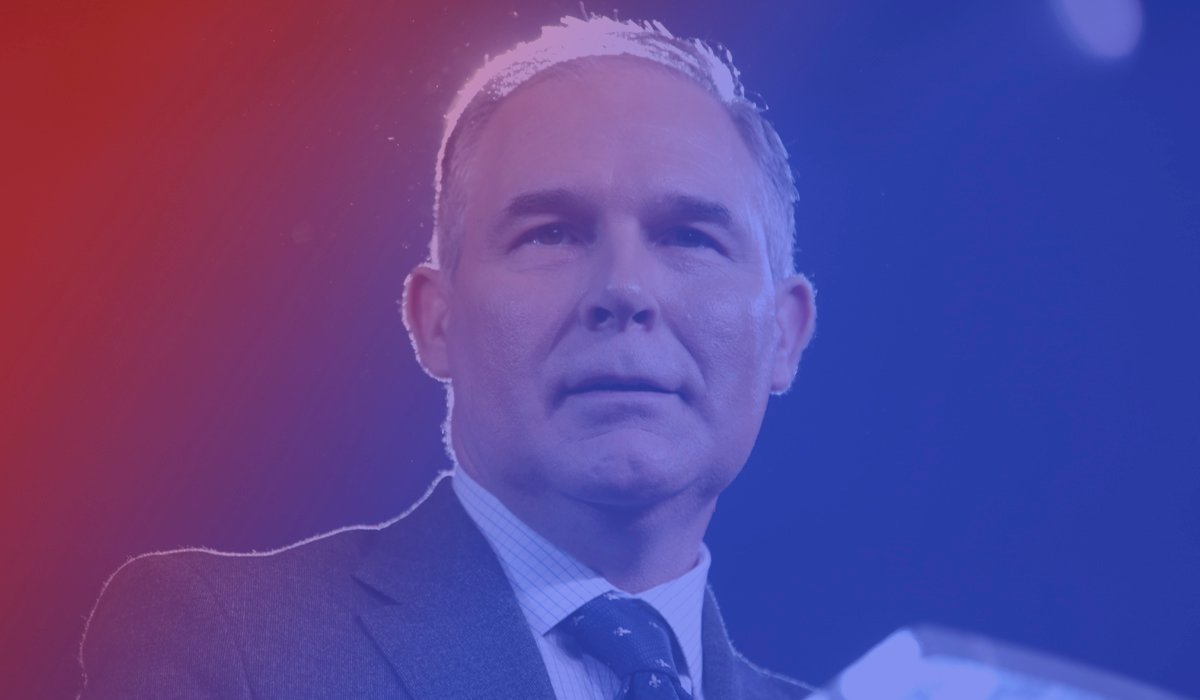When Donald Trump announced his pick for nominee to lead the EPA, a near-universal yelp of anguish could be heard coming from environmentalist corners where they point to NASA and other entities from the science community who say that man made usage of fossil fuels is creating irreversible damage to the planet.
Scott Pruitt. He is the attorney general of Oklahoma, who has railed against the Obama Administration’s clean energy agenda, and has EPA regulations that he feels “raises the cost of electricity, hurts the most poor among us, cuts domestic jobs and results in a dramatic re-shaping of the American electricity system.”
Pruitt is now in line to work on behalf of Trump, who wishes to unleash $50 trillion of fossil fuels and tap into resources on federal lands, which is currently prohibited under conservation laws intended to preserve the landscape for future generations.
How will he handle the EPA? Here are five things to know about Scott Pruitt:
He is an expert of Constitutional law
Pruitt, a native of Kentucky, was schooled at the illustrious Georgetown University where he studied Political Science and Communications. It was there that his ambition began to take off, and soon he found himself relocated to the heartland — Oklahoma. The University of Tulsa awarded him a J.D. in 1993.
According to his biography, Pruitt’s time in private law allowed him to become an expert of Constitutional law. He also made a major focus of contracts, insurance law, labor law, and litigation & appeals.
He is opposed to federal overreach and instituted a buffer in Oklahoma
Like most Republicans, Pruitt is an advocate of states’ rights and a limited government. As Oklahoma’s attorney general, he established the Federalism Unit (in the Office of Solicitor General) with the stated mission of untying the state from Washington rule.
With an attempt at fighting “unwarranted regulation and systematic overreach by federal agencies, boards and offices,” the agency has tap lawyers advising the AG and they make appearances “on occasion” in federal and state trial courts on matters important to the power structure of Oklahoma.
He is opposed to the belief that climate change is man made
Citing disagreement in the scientific community, Pruitt has claimed that there are no concrete facts to call the changes in weather, landscape, sea levels, and polar ice a phenomenon caused by mankind.
“Scientists continue to disagree about the degree and extent of global warming and its connection to the actions of mankind,” he recently wrote in National Review. “That debate should be encouraged — in classrooms, public forums, and the halls of Congress. It should not be silenced with threats of prosecution. Dissent is not a crime.”
He won’t have an easy time rolling back regulations
It is much easier for a U.S. president to create a National Monument and preserve federal land than to reverse that call and cancel its designation in an attempt to privatize the minerals on its property.
As explained by Utah law professor John Ruple to National Geographic, “The Antiquities Act gives the president the power to designate national monuments, but not the power to revoke prior monument designations, and two prior U.S. Attorneys General have opined that absent express delegation, the president would be without the power of revocation.”
